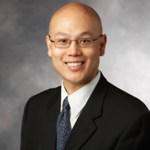Anson M. Lee, MD
This page provides information about a featured electrophysiologist, cardiologist, cardiothoracic surgeon, hospital, heart hospital, arrhythmia center, or atrial fibrillation center.
On this page you will find an overview of this atrial fibrillation patient services provider's atrial fibrillation treatments and background, as well as information about this provider's specialized afib procedures, such as catheter ablation, maze surgery, or the mini maze procedure, and the provider's treatment results, when available. There are also reviews by other afib patients, when available.
Provide a Patient Review List Your Services with Us
300 Pasteur Dr., Falk CVRB
Stanford, California 94305
United States
Phone: 650-736-2042
About
Dr. Lee is a board certified Thoracic Surgeon and specializes in the surgical treatment of all heart diseases, including arrhythmias, structural heart disease, aortic disease, and ischemic heart disease. He has practiced cardiothoracic surgery at Stanford since 2015. Dr. Lee has a special interest in the surgical treatment of abnormal heart rhythms and minimally invasive techniques to treat heart disease.
Dr. Lee received his medical degree from Washington University in St. Louis and completed surgical residency and cardiothoracic surgery fellowship at Washington University in St. Louis.
Dr. Lee leads the Surgical Arrhythmia Program at Stanford, working closely with the Stanford Electrophysiology Section. He completed his cardiothoracic surgical training at Washington University in St. Louis under the tutelage of Dr. Ralph Damiano, where he learned advanced techniques for the surgical treatment of atrial fibrillation. During his surgical residency, he completed a postdoctoral research fellowship on an NIH training grant. He studied mechanisms of and therapies for cardiac arrhythmias in the Cardiothoracic Surgery Research Laboratory at Washington University, in which the original Cox Maze operation was developed. He has published basic science articles examining the mechanisms behind atrial fibrillation. He has published translational articles examining various technologies clinically used to treat atrial fibrillation, and he has authored clinical reports examining the efficacy of the maze procedure in patients. He maintains a busy surgical arrhythmia service and runs a research laboratory studying mechanisms underlying arrhythmia ablation with collaborations in the Stanford Cardiovascular Institute and the Stanford School of Engineering.
Find out more about Dr. Lee here.
Find out more about the Stanford Cardiac Arrhythmia Service.
Atrial Fibrillation Procedures
Dr. Lee offers a comprehensive surgical approach to the treatment of atrial fibrillation, including:
- Full Cox-Maze procedure via traditional sternotomy
- Full Cox-Maze via minimally invasive approaches
- Stand alone surgical ablation
- Concomitant surgical ablation
- Hybrid catheter-surgical ablation
- Minimally invasive surgical left atrial appendage ligation
Specialized Procedures
Dr. Lee works in close collaboration with Dr. Paul Wang and the rest of the Stanford electrophysiology section. As a result, each individual patient benefits from an unbiased, comprehensive evaluation, and is offered the type of treatment that is best for the patient, whether that is surgery, catheter ablation, or non-interventional therapy.
When patients need surgical ablation, Dr. Lee applies the principles established in the research laboratory at Washington University, the birthplace of the Cox-Maze procedure. This has evolved into the Cox-Maze IV procedure, a procedure that utilizes incisions, bipolar radiofrequency ablation, and cryosurgical ablation to achieve the most durable results for patients with the most advanced forms of atrial fibrillation. This full procedure can also be performed with minimally invasive techniques, as detailed in an article written by Dr. Lee. (link: https://www.ncbi.nlm.nih.gov/pubmed/21057605)
For those patients that do not need open heart surgery, but need more than catheter ablation alone, Dr. Lee collaborates closely with the Stanford Electrophysiology section to off hybrid catheter-surgical ablation, a procedure that performs ablation on both the inside (endocardial) and outside surface (epicardial) of the heart. This technique has been shown to provide effective treatment for patients with persistent and long-standing persistent atrial fibrillation, and is done without the need for the heart-lung machine (cardiopulmonary bypass). For more information, click here.
Click here for a brochure with an overview of the surgical treatment of atrial fibrillation.
Find common FAQs about types of arrhythmia and treatment options here.
Clinical Trials and Research
Dr. Lee and the Stanford Arrhythmia Research Center are committed to ongoing research to advance the understanding and treatment of atrial fibrillation. Clinical research studies may be sponsored by the National Institutes of Health, other governmental agencies, industry, or Stanford arrhythmia doctors. Learn more about the latest clinical trials.
Learn more about the Stanford Surgical Arrhythmia Research Laboratory.
